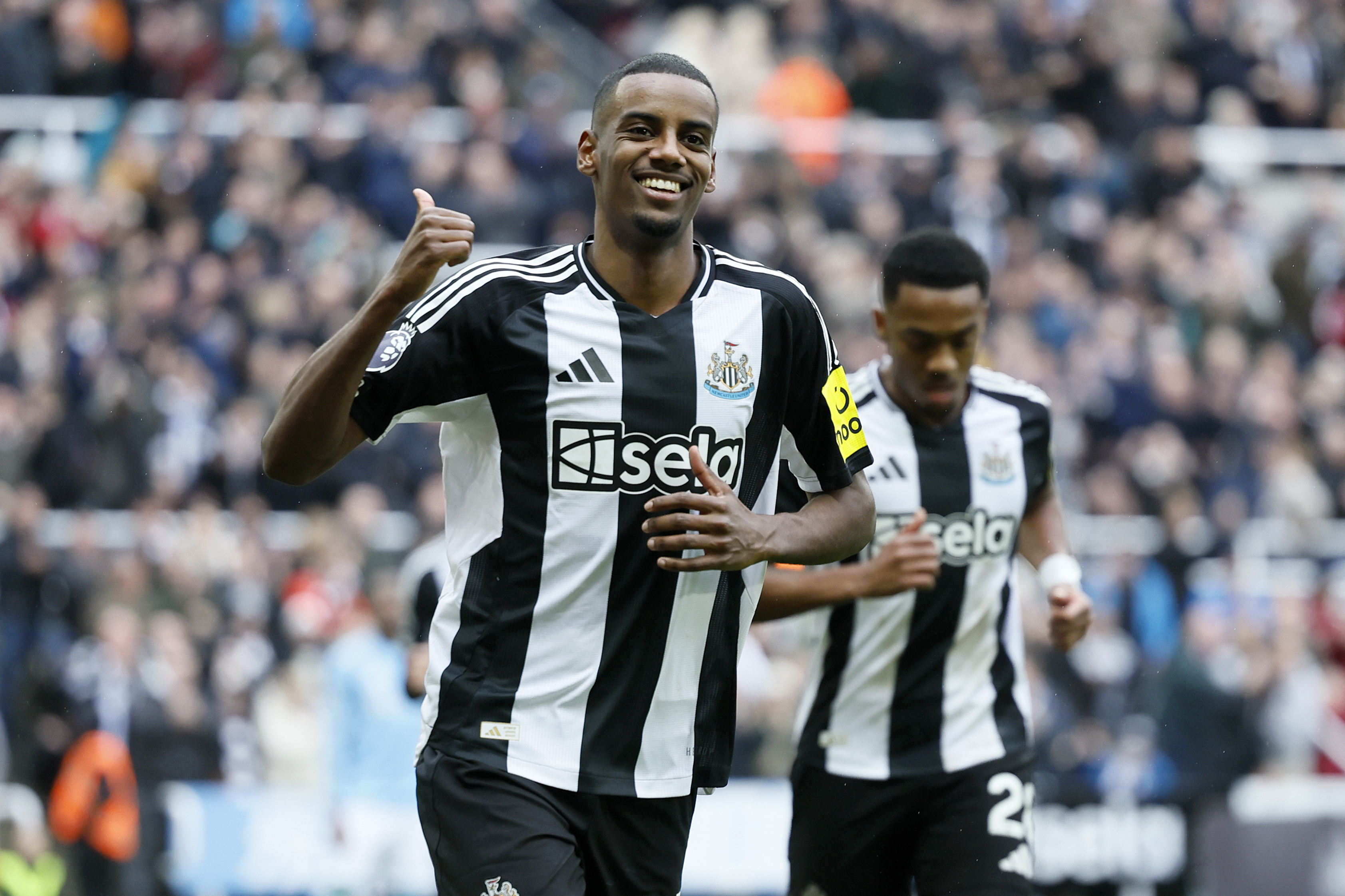Three-way power game: Benfica end years of hurt to take the throne
Porto? Pah. The Dragons have been slayed by the Eagles of Benfica – with Sporting also on the rise...
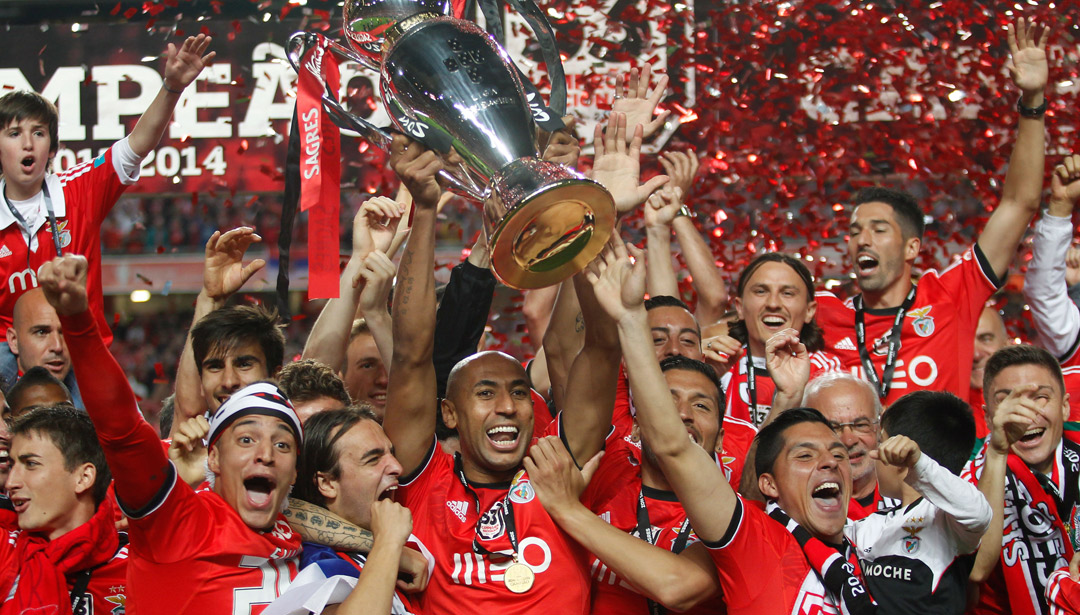
On Saturday 17 April 1982, Porto elected a new president. Nobody could have imagined how Jorge Nuno Pinto da Costa's leadership at the northern club would completely change the landscape of Portuguese football.
At the time Porto were still considered a provincial club, with the championship largely contested by the capital-city duopoly of Benfica and Sporting. From the inception of the Portuguese League to the moment Pinto da Costa took office, Porto had won the national title just seven times in 48 years; from that pivotal point until the present day, Porto would be crowned champions 20 times in 32 seasons.
If anything, the Dragons’ hegemony intensified as the Pinto da Costa era has gone on. In the last 11 seasons they won the league nine times, not to mention the Champions League and two Europa Leagues. The fact they achieved this despite having to constantly sell their best players earned them admiration throughout the football world.
However, what probably gave Porto even more pleasure than plaudits from abroad was the fact that the unstoppable victory march plunged their rivals from the south into an ever greater state of flux. Porto’s rise came in conjunction with mismanagement, misappropriation, and, above all, the chronic instability that brought about the darkest era in the history of Portugal’s biggest club, Benfica.
Get FourFourTwo Newsletter
The best features, fun and footballing quizzes, straight to your inbox every week.
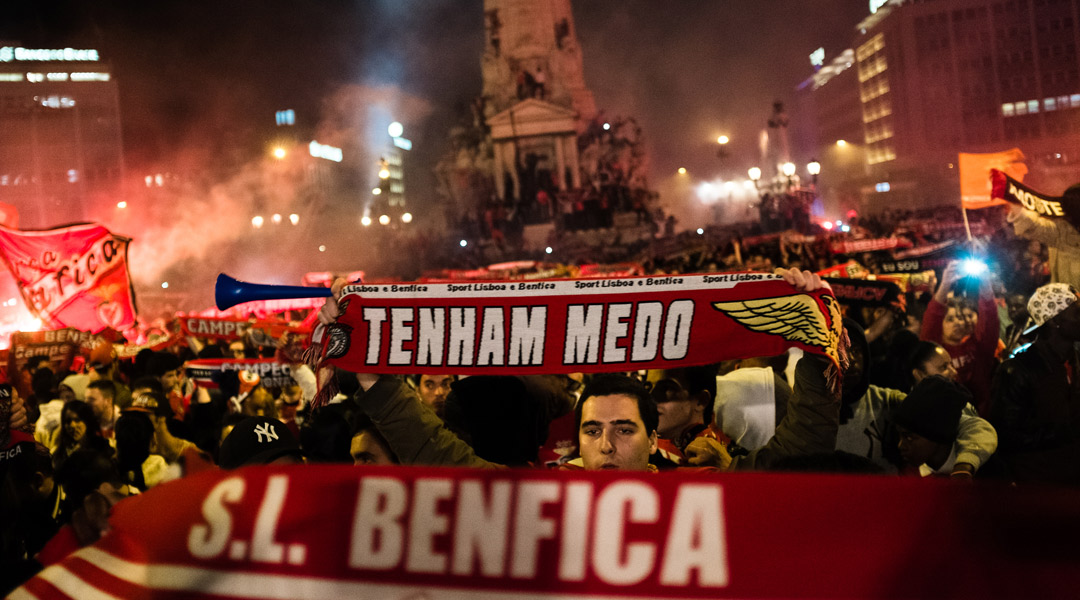
Struggles all around
Over in the green half of the city at Sporting Lisbon, things weren’t much better. Just two championship titles apiece in the 19-year period from 1995-2013 tells its own story.
Porto
League titles 20
Portuguese Cups 12
Champions League 1
Europa League 2
Benfica
League titles 9
Portuguese Cups 7
Sporting Lisbon
League titles 2
Portuguese Cups 4
Humiliation also came via players who had either been discarded or grown disillusioned in the capital, and went on to achieve almost legendary status after making the switch north: men like Benfica’s Maniche and Deco and Sporting’s João Moutinho. “It’s only possible to win titles playing for FC Porto; that’s why I changed clubs,” said Moutinho after his first year at Porto yielded a treble. “I saw the organisation, the whole working group, and I understood that here you could achieve the objectives set.”
But cracks have started to appear in the Porto empire. Pinto da Costa isn't getting any younger, and succession struggles have reportedly led to fragmentation as factions await the 76-year-old's retirement. The appointment of coach Paulo Fonseca at the start of the season was a divisive decision: vice-president Antero Henrique preferred Leonardo Jardim, who ended up at Sporting. Fonseca’s disastrous tenure and Jardim’s success suggests Henrique had made the sounder judgement. The convoluted and illogical handling of the contract situations of senior players like Lucho González, Nicolas Otamendi and Fernando is further indication that all is not well.
The malaise in the boardroom this season has been mirrored on the pitch. For the first time in their history, Porto failed to win any of their home Champions League matches. Benfica haven’t been so far ahead of Porto in the league (15 points by the time of their title win) since the 1960s. Sporting, currently eight points ahead of the Dragons, will finish above their northern rivals for the first time since 2001/02.
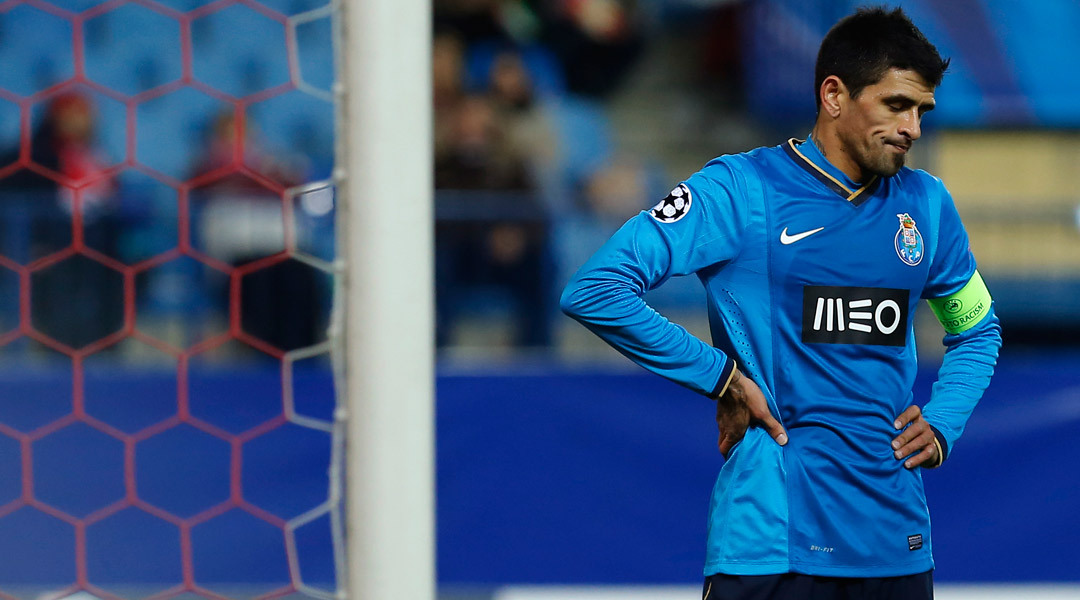
But can one bad season really mean a supremacy spanning decades is crumbling? That is the legitimate question asked by many Porto sympathisers, who also point to the three-year period at the turn of the century when the Blue and Whites failed to win the title. Then, Porto came back stronger than ever, but there's a major difference this time around: in contrast to the situation at the start of the millennium, Benfica are in rude health.
Benfica back in business
It's what is happening at the Estádio da Luz, rather than 300 kilometres to the north, that offers the strongest reasons to believe we are entering a new era in Portuguese football. It has taken Benfica president Luís Filipe Vieira a long time, but he has replaced disorder with order at Portugal’s most popular club. Although they remain very much in the red, the club's spiralling debt has been brought under control and a measure of financial stability has been achieved.
Many things have helped the club improve its finances: an aggressive marketing policy - Benfica are the club with the highest number of paying members in the world; the inception of an in-house TV channel which includes exclusive screening of several foreign leagues, thus eliciting subscriptions from those who don't even support Benfica; increased gate receipts thanks to success on the pitch; and a number of huge transfer windfalls.
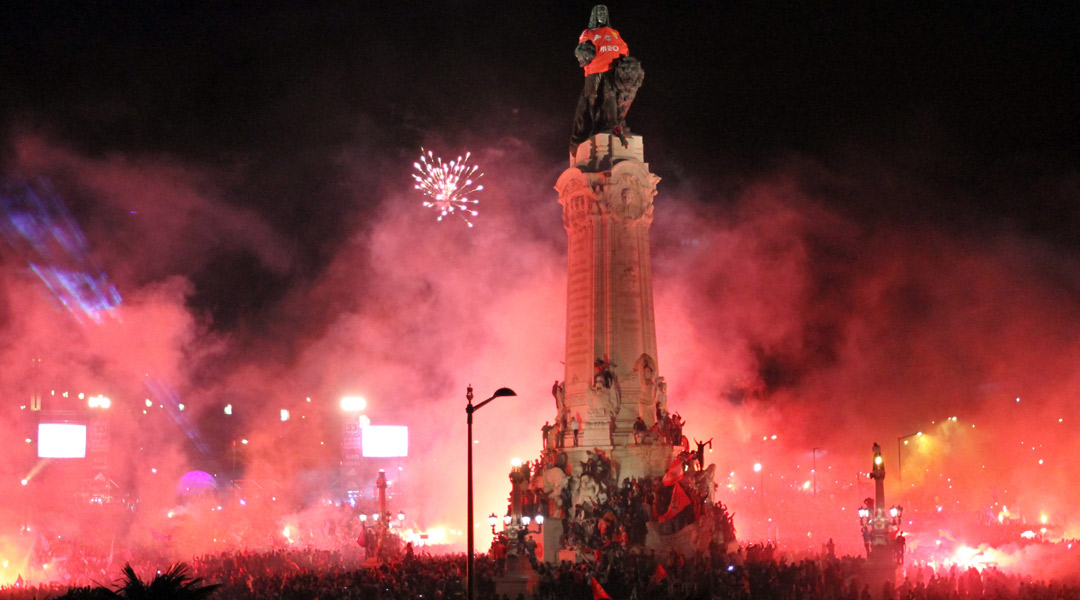
But it's a different kind of change that has given Benfica fans real hope that their recent success is no false dawn. The key factor is undoubtedly stability. Prior to Jorge Jesus’s appointment in the summer of 2009, the Eagles had had 23 head coaches in 20 seasons. Jesus is now Benfica's longest-serving coach since the war, and the third-longest ever.
As Portuguese football journalist Vasco Mota Pereira explains: “The new era began the second Luís Filipe Vieira didn't fire Jorge Jesus when Porto’s André Villas-Boas won the league [in 2010/11]. It was reinforced when the president did not sack Jesus for the so-called failure of last season when most Benfica supporters wanted his head. Stability is what makes long-term cycles what they are – long term.”
The volatile coach certainly has his critics – just ask Tim Sherwood what he thinks – but nobody can doubt that he has transformed Benfica into a serious force after years of mediocrity. The Eagles stormed to the title in his debut season. You can make a good argument that they threw away the championship in each of the last two seasons too, having led until the penultimate game last time out and dropping points at crucial times the previous year.
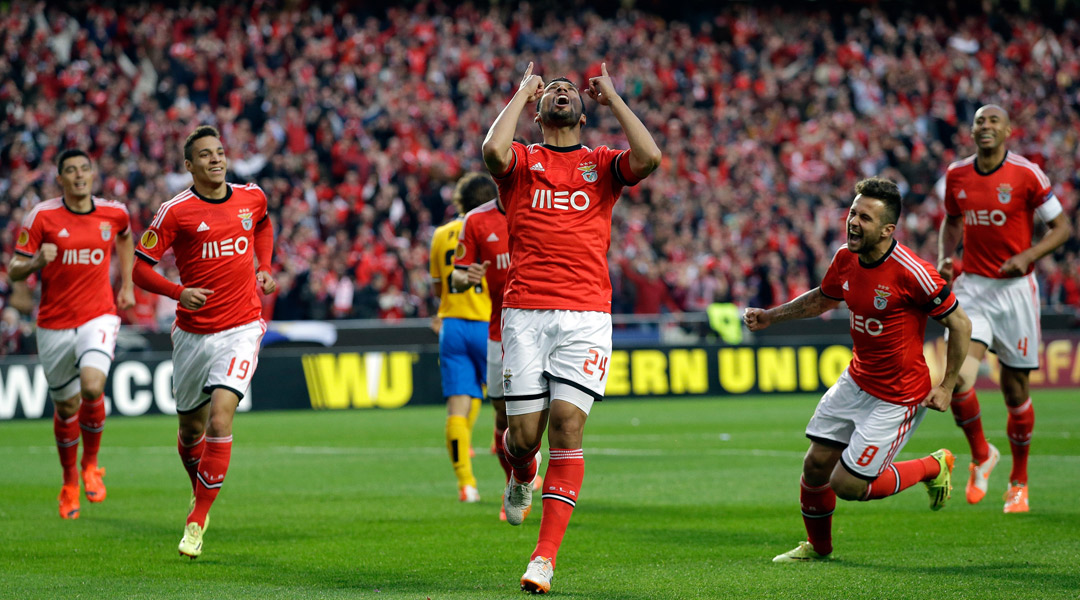
Further evidence of Benfica’s re-emergence can be found in their European performances. The elimination of Tottenham meant that under Jesus, Benfica have reached the quarter-finals or better of European competition in each of the last five seasons. Thursday night's semi-final first-leg win over Juventus has given them very realistic hopes of a second final in as many seasons.
“My sensibility and knowledge tell me Benfica is close to achieving hegemony in Portuguese football,” Jesus said in typically immodest fashion in pre-season. The comment earned widespread ridicule at the time. The Eagles were still reeling from a traumatic end to the season: with two weeks remaining they were favourites to lift the league and cup double, and had a Europa League final date against Chelsea. But a spectacular collapse left them empty-handed. Step back from the bitter disappointment of that shattering fortnight, however, and one has to conclude that Benfica had a tremendous season, only to fall at the final hurdle.
Twelve months on and the club are in a similar position. They've already won their 33rd league title, are in the final of the Portuguese Cup where they face Rio Ave, and have the Europa League in their sights once more. Should Benfica see out the remainder of the season in style, Jesus's bullish words last summer may not sound so fanciful after all.
Sporting build momentum
For Sporting Lisbon, last season was their worst ever in over 100 years of history. An inexplicable decision to all but give up on the club’s most valuable asset, its world-renowned academy, proved calamitous. Twenty-six players were recruited in a two-year spell under the previous presidential regime, not one of whom was Portuguese. The results were disastrous, both on and off the pitch. A spiralling wage bill, dwindling gate receipts and a complete lack of direction led the club to the brink of ruin.
But in March last year Sporting voted in a brash, ambitious and hard-headed new president, Bruno de Carvalho. The 42-year-old drew comparisons with the young Pinto da Costa when he became Porto president – a fearless and fierce critic of everybody and everything that he perceives as an obstacle to Sporting’s success. Some of his statements have bordered on bad taste, such as the repeated assertions that he will disregard the utterances of his Porto counterpart as the words of a senile man. Yet the fervent nature of his every intervention has succeeded in galvanising the club from top to bottom, not least the supporters.
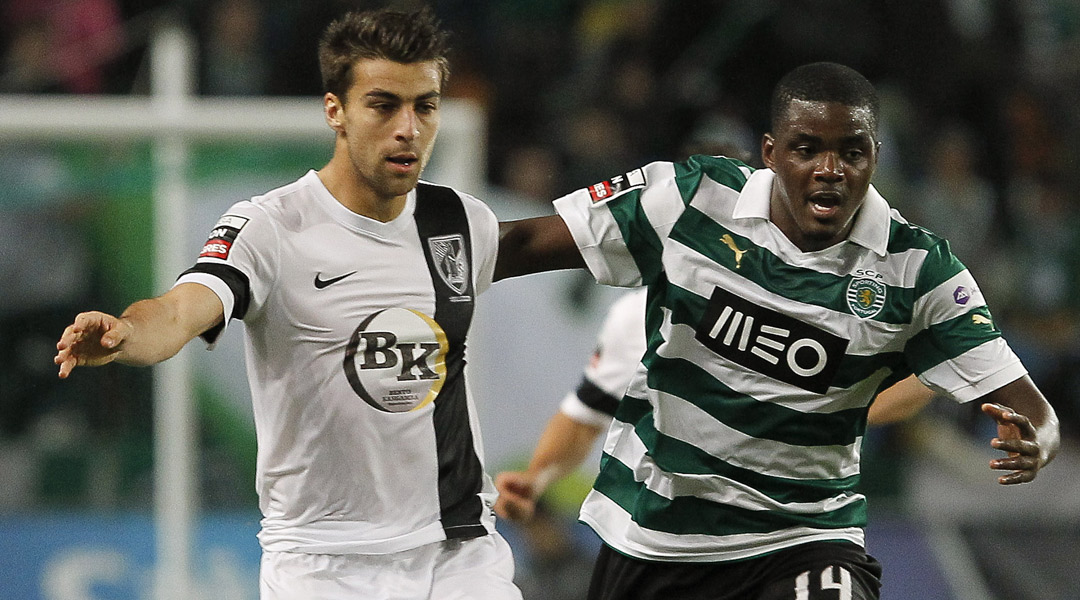
He has backed up his belligerent words with decisive action. He immediately set about slashing the wage bill by ousting the high earners, trimming the backroom staff and making it clear the team would be built around a core of academy players. With a scattering of economical but astute signings, the team has been completely transformed.
Regularly lining up with six or seven home-grown players, Sporting have provided one of the stories of the season. Leonardo Jardim’s men have been competing hard against their two wealthier rivals all season, and the defeat of FC Porto in the league fixture at the Alvalade last month confirmed that Sporting are now back in the fight to be top dogs.
A guaranteed second-place finish gives them direct access to the Champions League group stage, and the resultant cash bonanza will boost the club’s chances of holding onto their highly sought-after younger players – not least the brilliant midfielder William Carvalho, a standard-bearer of the academy’s potential. Even if Carvalho does not stay in Lisbon, the tough negotiating stance of his namesake and the president will guarantee a transfer windfall that will be duly reinvested.
SEE ALSOEverything you need to know about... William Carvalho
“Sporting know where they want to get to and how to get there,” said the president recently. “Our overriding goal is not to prepare Sporting to win the title every X number of years. Our goal is to become the biggest club in Portugal.”
Power shift ahoy
Porto’s position as the uncontested kings of Portuguese club football is under severe threat. “Porto have lost their mystique,” opined their legendary goalkeeper Vítor Baía, now a pundit, last week.
For the first time in over a generation, Benfica appear primed to reassume the mantle as the nation’s 'club to beat'. With Sporting also jockeying to get in the act, what has transpired in 2013/14 could prove a major turning point as to where the balance of power in Portuguese football shall lie for the foreseeable future.
